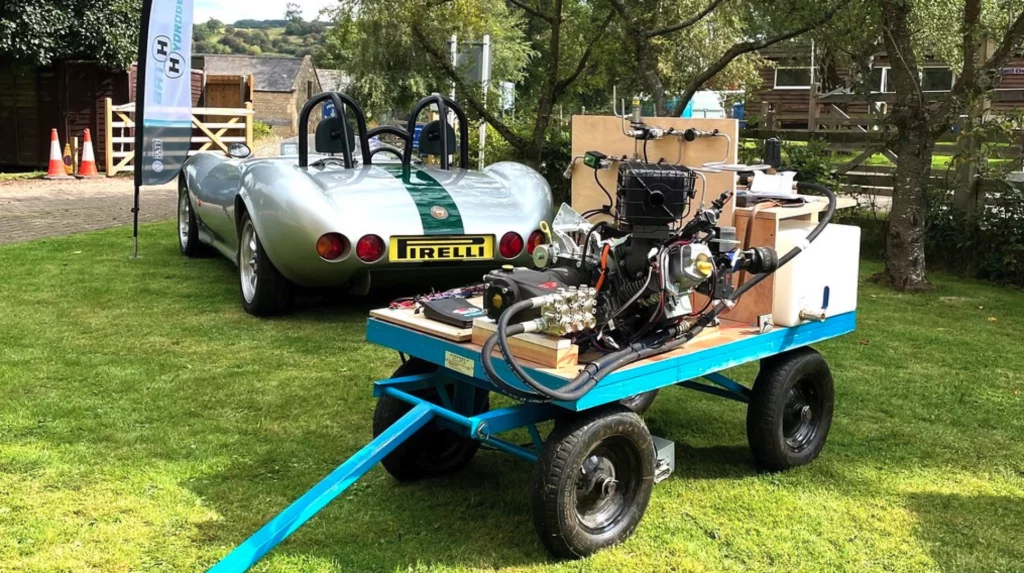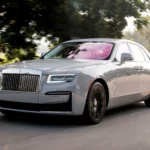Students at the University of Bath have successfully developed and tested a hydrogen-fueled internal combustion engine (ICE) intending to set new land speed records. This pioneering project not only demonstrates the students’ ingenuity but also highlights the university’s commitment to advancing hydrogen research and sustainable transportation solutions.
“Hydrogen-fueled engines work very differently to normal petrol ones and require different parts that are not commercially available,” explained Samuel Ray, Bath Hydrogen team leader. “We are lucky to have received help and equipment from our sponsors. We worked hard alongside Link Engine Management to program their ECU to work with hydrogen, for example.”
Engine Development and Testing
The Bath Hydrogen engineering team, consisting of 15 students specializing in various engineering disciplines, undertook this project despite having limited prior knowledge of hydrogen as a fuel. Team leader Samuel Ray explained that they began by extensively studying existing research and literature to understand the complexities of hydrogen combustion.
ALSO READ: World’s Largest Liquid Hydrogen-Power aircraft engine tested in the U.S
“The achievement makes them the world’s first undergraduate students to develop and run a hydrogen-powered internal combustion engine,” according to a statement by the University.
“We started by reading all of the research and literature we could find, analyzing and cataloguing it all to understand it and prioritize what was possible for us to pull off, as a fairly small team,” said Samuel Ray, an engineering student and leader of Bath Hydrogen team, in a statement.

According to the engineers, the motivation for pursuing this technology lies in hydrogen’s potential as a carbon-neutral fuel, coupled with the impending ban on the sale of new gasoline and diesel vehicles commencing in 2035.
Their efforts led to the successful conversion of a single-cylinder generator engine into a hydrogen-powered prototype. With support from sponsors like Vanguard (Briggs & Stratton), Link Engine Management, and Clean Air Power, the team overcame technical challenges to adapt the engine for hydrogen use.
Dr. Kevin Robinson, the team’s academic supervisor, praised this milestone, noting that the prototype has already undergone three hours of continuous operation, including rigorous testing at full load.
The team’s next goal is to adapt a Ford 2.3-liter EcoBoost engine to run on hydrogen and install it in a Ginetta G20 racing vehicle for land speed record attempts. This ambitious project not only demonstrates the potential of hydrogen as a carbon-neutral fuel but also showcases the students’ innovative spirit and determination to explore cutting-edge technologies.
Despite the environmental benefits of hydrogen, including zero CO2 emissions during use, the engineers acknowledge significant challenges. Hydrogen’s low energy density per unit volume necessitates innovative storage solutions, such as compression or cryogenic methods, which pose unique engineering considerations compared to conventional fuel storage.
To meet safety standards, the team operates the prototype engine outdoors and remotely, underscoring their commitment to responsible experimentation.
The University of Bath’s focus on hydrogen extends beyond this student-led project. The institution recently joined the HyFIVE hydrogen consortium, aiming to advance hydrogen as a zero-emissions aviation fuel by the 2030s. This collaborative effort underscores the university’s role as a leader in hydrogen research, emphasizing the importance of sustainable energy solutions for future transportation.









